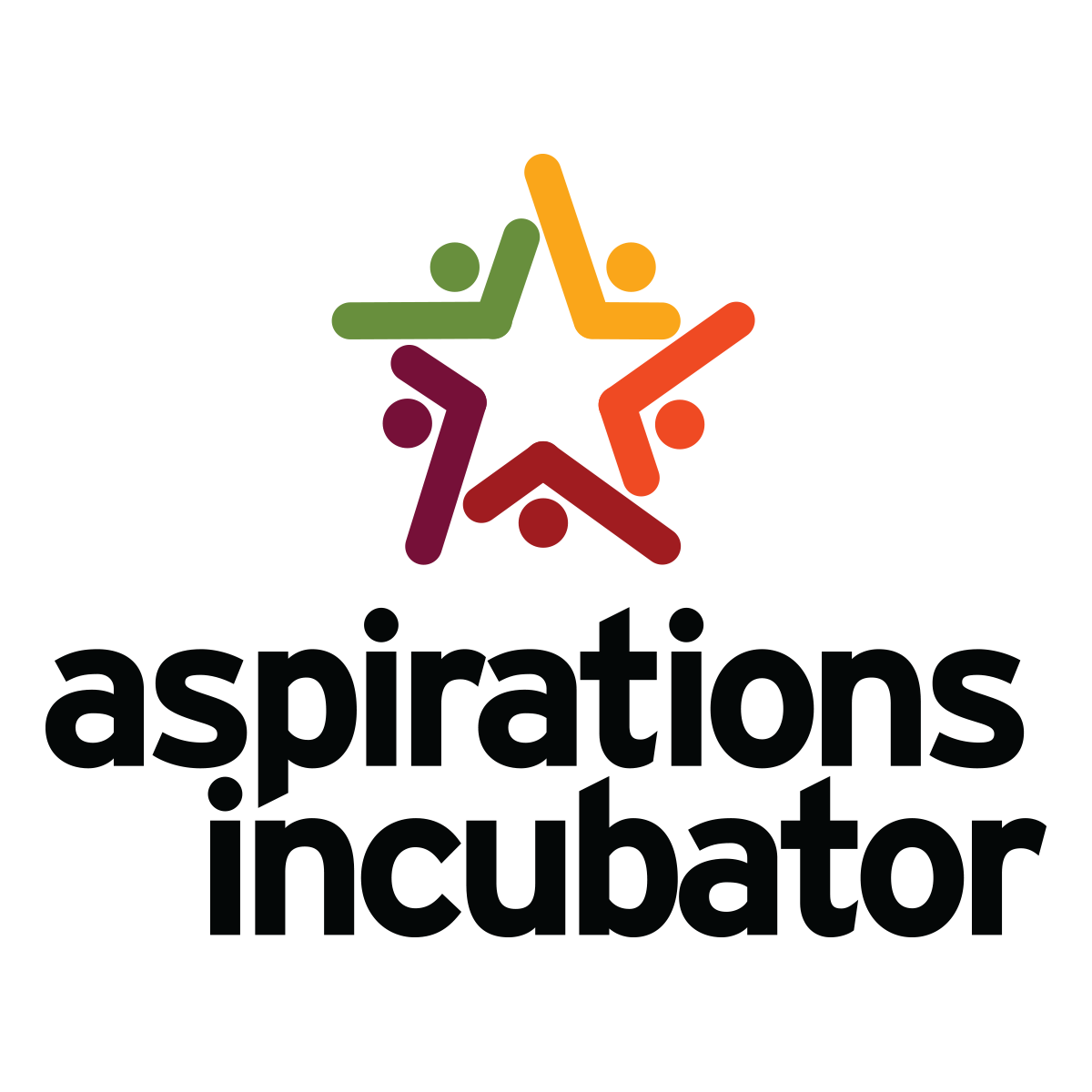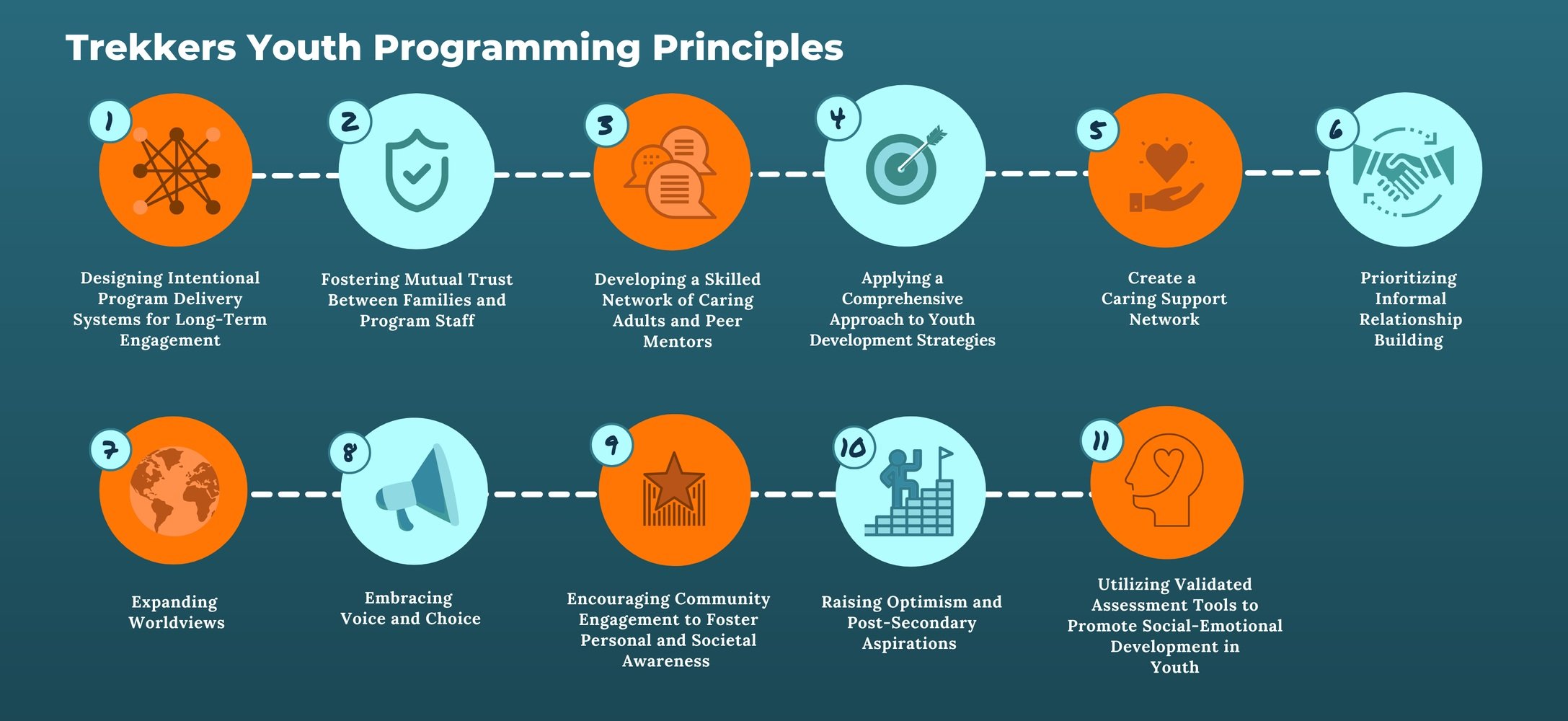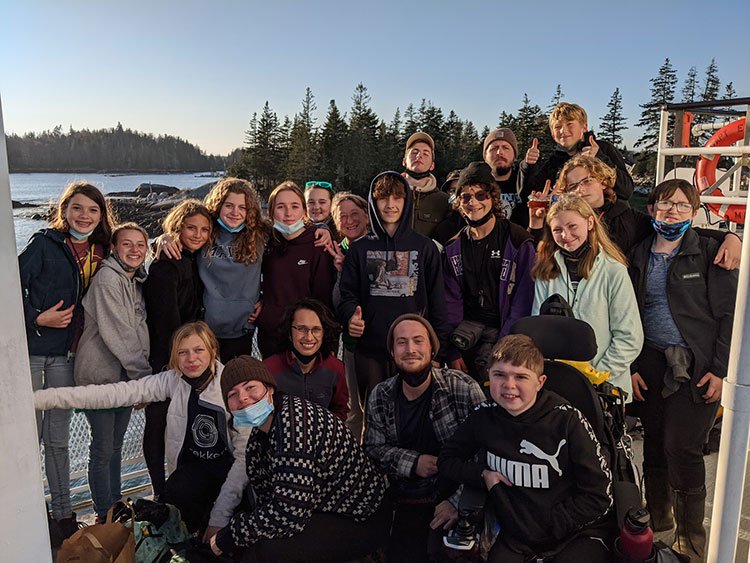
The Response
The big bet
To address the challenge of rural aspirations in Maine, the Aspiration Incubator was created – a pilot initiative to develop, demonstrate, and evaluate a youth development model that could be implemented throughout the state and nationally.
After an extensive and rigorous selection process, five youth development organizations and partner school districts from across Maine were chosen to take part in this six-year project. All of them have adopted the ten Youth Programming Principles developed by Trekkers – a highly successful program that has dramatically increased high school graduation and college matriculation among young people in mid-coast Maine.

Learning About the Trekkers Youth Programming Principles
One program staff person from each Aspirations Incubator site attended an immersive training experience at Trekkers in summer 2017, to learn about the Youth Programming Principles and how to develop relationship-focused youth programming.
Program Design
The Aspirations Incubator sites took the Youth Programming Principles and formulated their own program design, rooted in the strengths of their local community and organized around 4 key areas:
A Unique, Long-Term Commitment
In addition to the Youth Programming Principles, a vital distinguishing feature of the Aspirations Incubator model is that the programs start working with young people in 7th grade – in the critical middle school years when personal identity and aspirations are starting to develop – and stay with them through high school graduation.

“Programs that offer middle school students structured exploration and peer interaction and take advantage of their willingness to try new things, can help them learn more about themselves and how they want to fit into the world around them.”
— The Wallace Foundation: Engaging older youth: Program and city-level strategies to support sustained participation in out-of-school time. (2010)
How It All Works
Each program site has a close working relationship with its local school district so that together they can meet the specific needs and interests of young people in their local community, and develop stronger bonds between students and the school.
COMMUNITY
Students become involved in civic projects. They travel to other parts of Maine and New England, visiting college campuses along the way. They engage in a variety of outdoor activities, including camping, hiking, and canoe trips. But what is most important is not the specific program or its activities; it is learning to be part of a community and developing powerful new relationships.
RELATIONSHIPS
Young people form relationships with their adult mentors and other students involved in the program – people outside of their immediate family and social circle with whom they otherwise might never connect. Through these shared experiences and relationships over their six-years in the Aspirations Incubator program they develop the confidence to take on new challenges and dream bigger dreams.
New Skills, New Possibilities
As they build strong and lasting support systems, their eyes are opened to new possibilities and a wide array of future career opportunities in Maine and throughout the world. These mentoring relationships also help them develop the emotional skills and resilience they will need to not only get to college but to stick with their education and obtain a degree no matter what challenges arise along the way.
They also develop the kinds of core skills that any future employer will be seeking: leadership, problem solving, collaboration, critical thinking, and communication skills.
Learn more about our sites and partners.

Grant funding supplies financial resources to enable each Aspirations Incubator program to build capacity and to hire, train, and compensate staff.
The Aspirations Incubator also provides opportunities for convening, coaching staff members and supplying technical assistance, and assisting with communications. The outcomes of the Aspirations Incubator pilot are monitored and evaluated through an independent evaluation team from the University of Southern Maine.
Once the pilot initiative ends in 2023, if the Aspirations Incubator programs have been successful – as the Trekkers model has been – it is our hope that other organizations will step up and take on the challenge of raising the aspirations of young people in all of Maine’s rural communities – using the principles, programs, and learning from the Aspirations Incubator.
Read about the Results of our Response.



